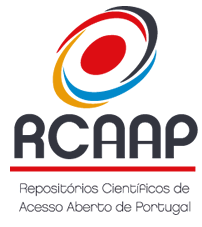O curso “Ambiente Virtual de Aprendizagem” e a formação de professores: estratégias didáticas diferenciadas para uma capacitação à distância
DOI:
https://doi.org/10.5433/1679-0383.2016v37n1p67Palavras-chave:
Formação de Professores, Educação a Distância, Metodologias Ativas de Aprendizagem, Metodologia de ensino e aprendizagem, Ambiente Virtual de Aprendizagem.Resumo
O presente texto tem como objetivo descrever os processo metodológico e as estratégias didáticas adotadas no curso de Ambiente Virtual de Aprendizagem (AVA) oferecido pela Universidade Estadual de Londrina (UEL-PR). Este curso foi oferecido na modalidade de Educação a Distância (EAD) entre o período de agosto a dezembro de 2014, com carga horária de 60 horas, tendo como público alunos da Graduação e Pós-Graduação, funcionários e professores das mais diversas áreas do conhecimento desta instituição. Teve como objetivo promover reflexões sobre a inserção das TDIC (Tecnologias Digitais de Informação e Comunicação) no ambiente escolar, oferecer subsídios teóricos sobre EAD e, de forma prática, criar estratégias didáticas para o seu desenvolvimento. Este curso AVA destaca-se por ser o primeiro curso de Extensão Universitária oferecido pela UEL voltado especificamente para a temática EAD e Formação de Professores. A pesquisa teve uma abordagem qualitativa do tipo pesquisa-ação. A coleta de dados foi realizada por meio de observações, percepções e principalmente pelos depoimentos dos participantes. A metodologia adotada no curso foi a Metodologia Ativa de Aprendizagem e as estratégias didáticas baseadas no PBL (Problem Based Learning). De acordo com o apresentado, os resultados foram considerados satisfatórios no tocante a aprendizagem, ao desenvolvimento e aproveitamento dos alunos.Downloads
Downloads
Publicado
Como Citar
Edição
Seção
Licença
Semina: Ciências Sociais e Humanas adota para suas publicações a licença CC-BY-NC, sendo os direitos autorais do autor, em casos de republicação recomendamos aos autores a indicação de primeira publicação nesta revista. Esta licença permite copiar e redistribuir o material em qualquer meio ou formato, remixar, transformar e desenvolver o material, desde que não seja para fins comerciais. E deve-se atribuir o devido crédito ao criador.
As opiniões emitidas pelos autores dos artigos são de sua exclusiva responsabilidade.
A revista se reserva o direito de efetuar, nos originais, alterações de ordem normativa, ortográfica e gramatical, com vistas a manter o padrão culto da língua e a credibilidade do veículo. Respeitará, no entanto, o estilo de escrever dos autores. Alterações, correções ou sugestões de ordem conceitual serão encaminhadas aos autores, quando necessário.



















